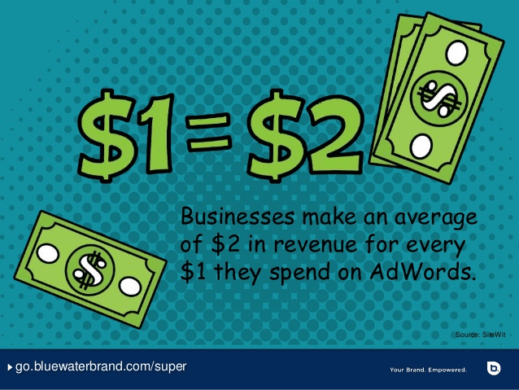Most ads are a waste of money.
If you’re using paid advertising as part of your marketing campaign, you need to be creative and strategic. Only then can you expect a great ROI in the form of brand awareness, leads, and potential customers for your business.
I’ve compiled a list of 12 ad copywriting strategies for Google AdWords, Facebook, Twitter, and LinkedIn, to help you improve your ad campaign performance and drive your brand forward.
Ready to craft magnetic copy for your ads?
Google Ads Copy Strategies
Google Ads can be incredibly lucrative for your business. Spending $1 can earn you an average of $2 in revenue.
However, if you communicate your offer accurately, you can expect a higher ROI.
For example, you’re more likely to convert a searcher into a potential customer if they see their searched query in your online ad or banner ad. Look at the example below.
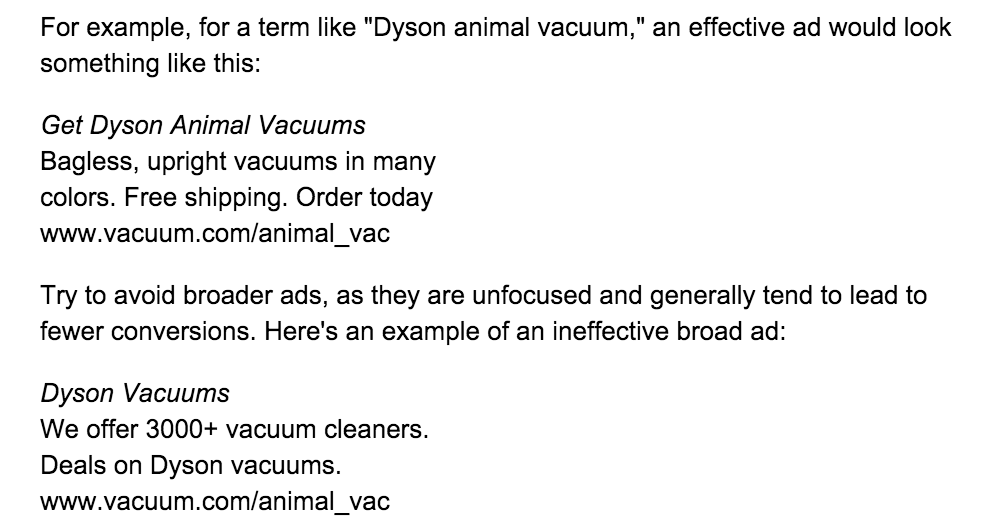
Note: There’s a caveat to including the searched keyword in your copy that you’ll see in strategy 2.
Here are three more specific ad copy strategies to drive ROI.
1. Scan Your Competitor’s Ad Copy With Spyfu
Do you know your actual competitors?
They might not be companies that sell the same products as you (in the physical space).
For example, you might be a high-end shoe company, but your PPC competition might be discount websites. If you keep tabs on what your competition is up to, then you can acquire leads and potential customers more quickly.
Try to outdo their persuasion – whether they’re focusing on price or are using a testimonial from an industry influencer.
Spyfu is a great tool for discovering the most profitable keywords for the search engines and ads of your competitors.
Using the tool for your marketing plan and business goals is simple:
Enter your target keyword and scroll to the bottom. Here are the ads for the term ‘keyword research.’
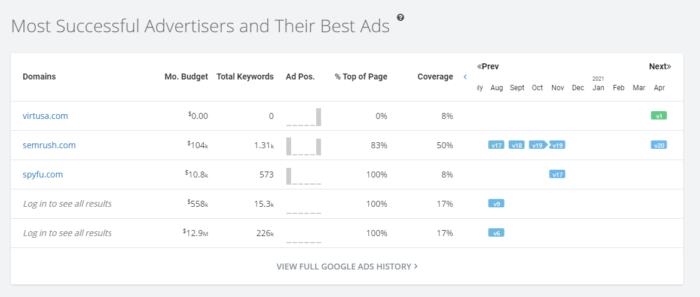
You can also go to the tool’s homepage and enter your competitor’s website directly.
This provides a list of paid and organic keywords that your competitor is using.
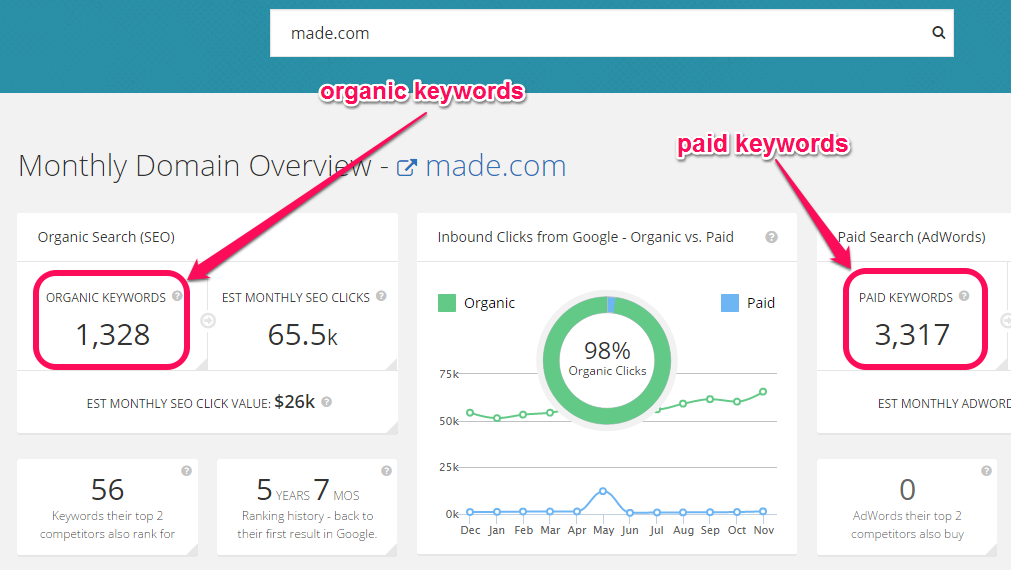
By clicking on the paid keywords tab, you’ll get the CPC and keywords your competitor is bidding for.
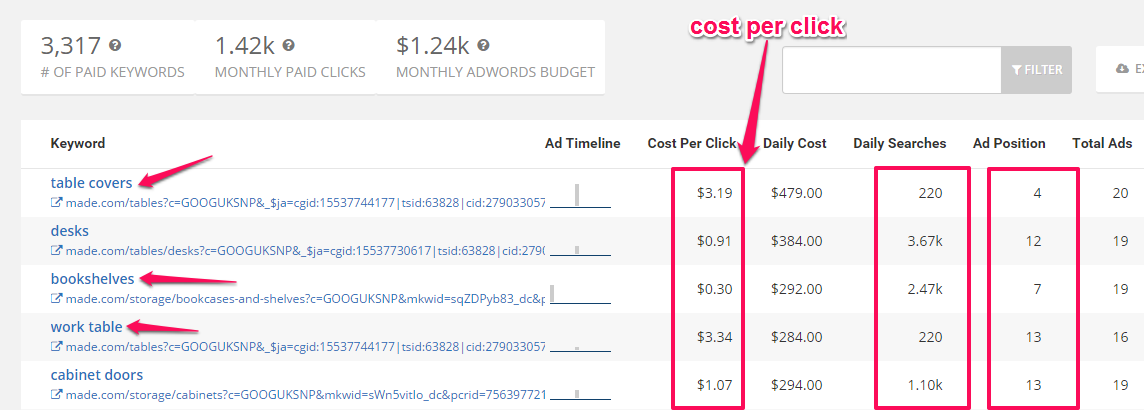
You can quickly scan the copy with the keywords that are a good fit for your business.
2. Obsessively Test Headlines: They’ll Make or Break Your Ad
If you just copy your competitors, you’ll get lost in the noise of the search engines. You need to get stand out, which means you need compelling copy.
Look at the many search results using the term ‘mobile application developer’ in the screenshot below. Not such a creative strategy, right?
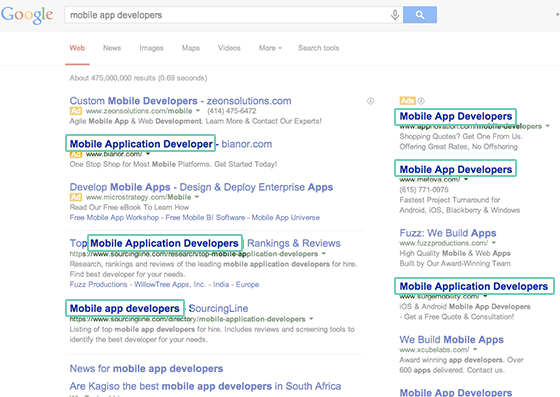
Dynamic keyword insertion (DKI) in your headline will help make your ad campaign more relevant to many search queries.
It’s more important, though, to make your advertising strategy and your copy unique and compelling. To make your headline stand out, you can include your value proposition in the headline as an interesting marketing tactic.
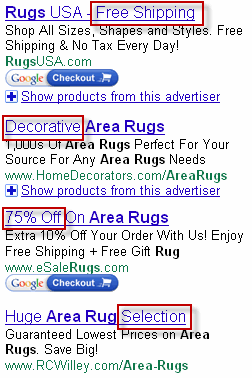
Always research your buyer’s intent.
If your customers are looking for solutions to get rid of acne, then “Dealing with Acne?” is an ineffective headline that won’t encourage a high CTR or meet your marketing objectives.
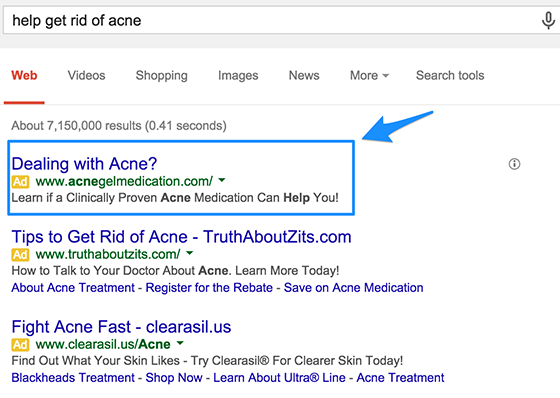
Now, look at the WeBuyCar.com ad below.
Its headline focuses on the searcher’s end goal – buying cars. Hence, it’s effective and will boost the business’s marketing campaign.
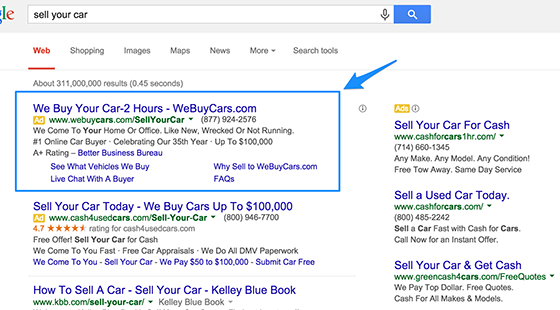
If you’re running out of fuel for adopting a creative strategy, fall back to the evergreen copywriting foundation – focus on your product’s benefit for the customer.
Look at how the Fiji Travel ad below focuses on potential customers.

Next, try to use the words ‘you’ and ‘your’ in your advertising strategy. They’re the bread and butter, when talking about potential customer benefits and these two words can significantly enhance your ad’s performance.
The Americommerce ad below talks about being the “Best eCommerce Solution.”
Who cares?
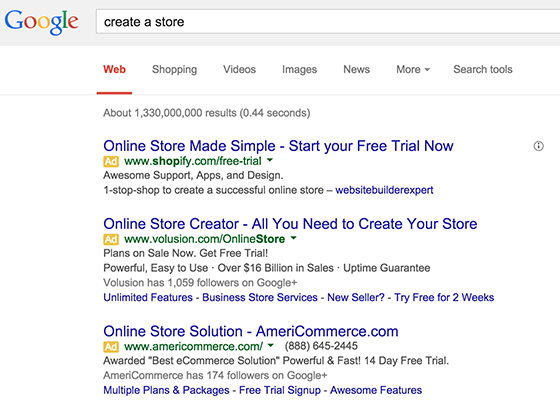
Volusion and Shopify do a great job talking about the convenience and benefits for their customers. This is a great marketing tactic and will get them noticed on the search engines.
Finally, I would recommend staying away from making false promises. Back up your claims with data and testimonials on your landing page/ad copy/ and social media adverts.
Otherwise, you’ll end up damaging your brand image, opening yourself to litigation, and losing prospects. Instead, focus on what you know you can deliver.
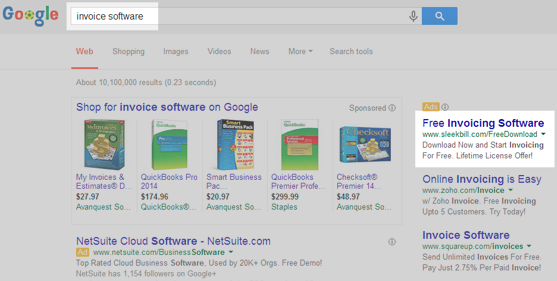
The ‘free invoicing software’ ad above leads to a landing page, only to show that the software has a 30-day free trial.
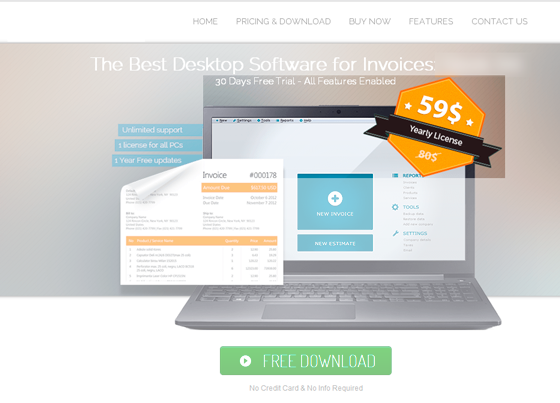
Which is huge turn-off for potential customers.
3. Don’t Use Industry Jargon and Backup Your Claims
To increase your credibility and improve your quality score, share real data and numbers. This establishes trust.
Who has given you the ‘No. 1’ website in your industry tag?

Stay away from making hollow claims. Rather, include data and statistics to prove your worth.
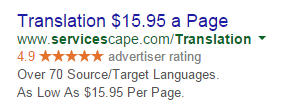
MECLABS tested their generic ad against a data driven and useful one.
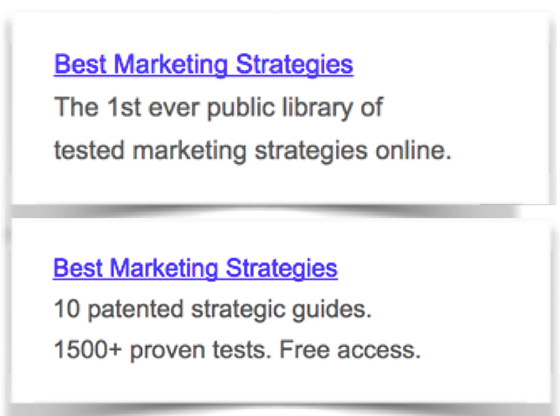
The result was an 88 percent increase in their click-through rate.
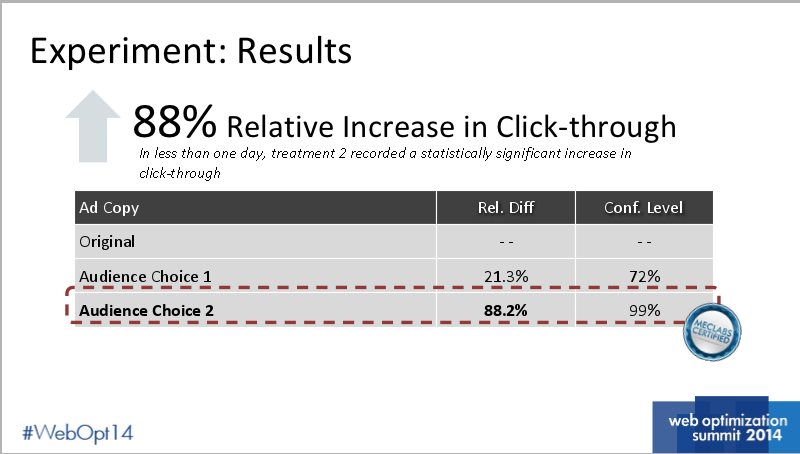
Test specific numbers (like 1542) in your ad campaign copy, to make them more authoritative and persuasive.
Google ads get stale quickly, resulting in a decrease in click-through rates. Use updated data to remain current on the search engines and come up with a convincing new copy strategy regularly.
For example, look at the tax accounting firm ads below.
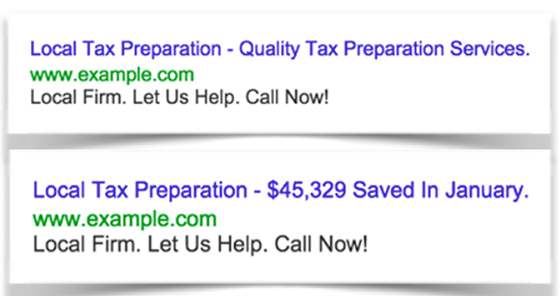
The numeric ad (with current figures) saw a whopping 217 percent increase in CTR, as well as a 23 percent improvement in conversion rates, over the control.
Facebook Ad Copy Strategies to Try
As the leading social media site, Facebook is worth the effort. With a little bit of effort, you can reach more than 2.8 billion users.
To be successful, however, your ad will need to stand out.
Here are copy strategy and writing techniques you can use to craft seductive copy to boost your marketing campaign.
1. Include Social Proof in Your Ad Copy
Social proof is an old-school technique to earn credibility and influence potential customers to take action.
Brands use numbers of customers, testimonials from an influencer, or opinions of other customers as proof of their product’s effectiveness. Consumers are more likely to trust other consumers; it’s why many people turn to social networks and their peers for product recommendations.
Record label RCA Victor used the strategy to get more sales on the ninth album by Elvis Presley. They titled it “50,000,000 Elvis Fans Can’t Be Wrong”.
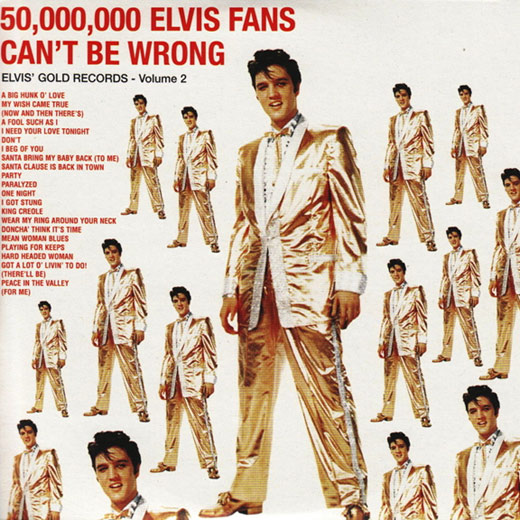
On Facebook, we found ads with user-generated content have a 300 percent higher CTR and a 50 percent lower cost per acquisition (CPA).
Here’s three examples of integrating social proof into your ad campaigns.
Share links to major media mentions in your ad and pull a relevant quote from the article. Look at how Equil Smartpen does this in the ad below and think about how you can apply it to your own content strategy.
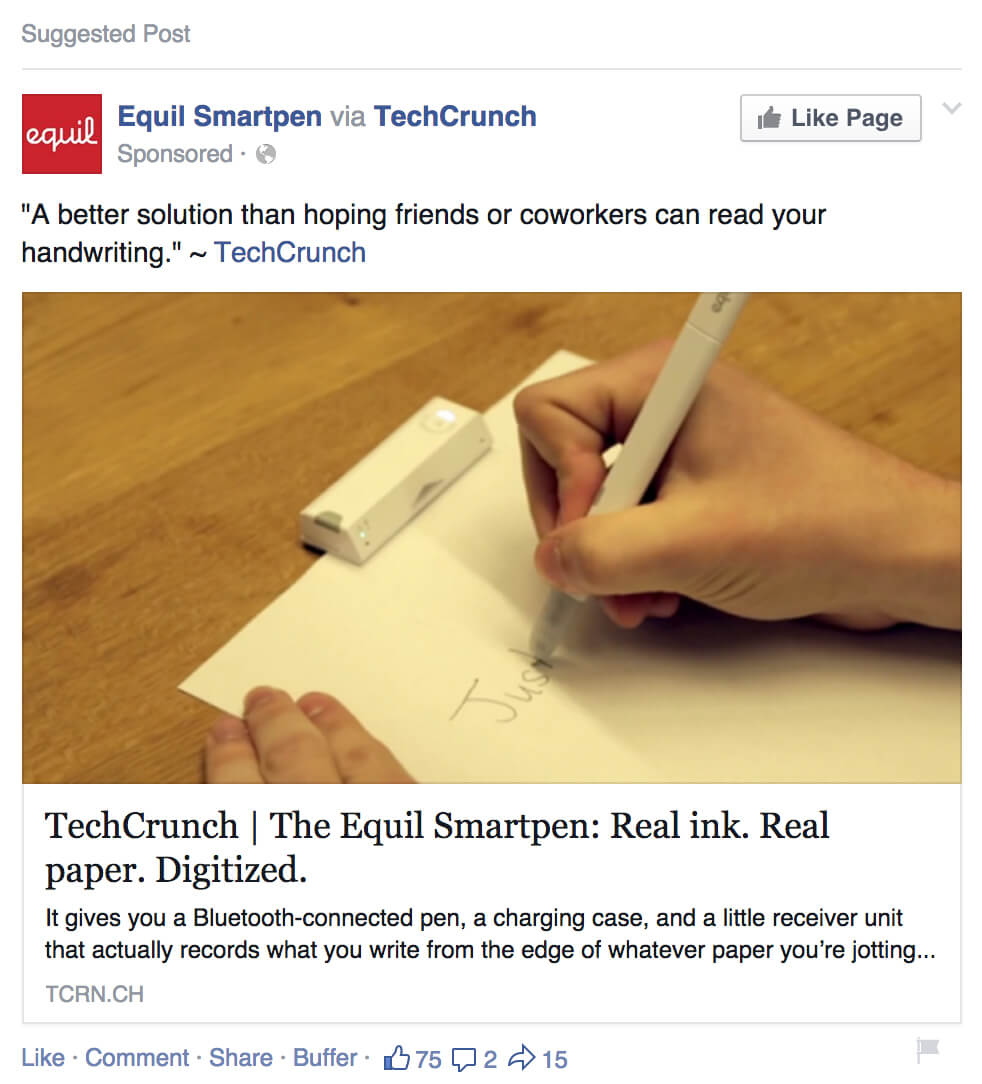
Or, you can use your site reviews to retarget someone who clicked on your website once.
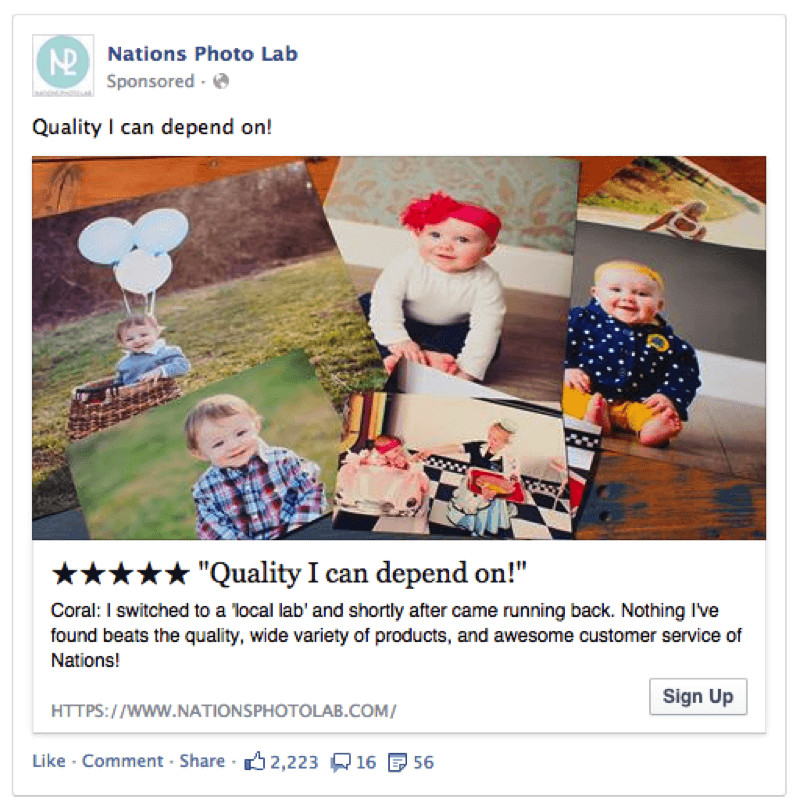
Or, include numbers in your ad campaign to show your impressive customer base, like Ecwid does.
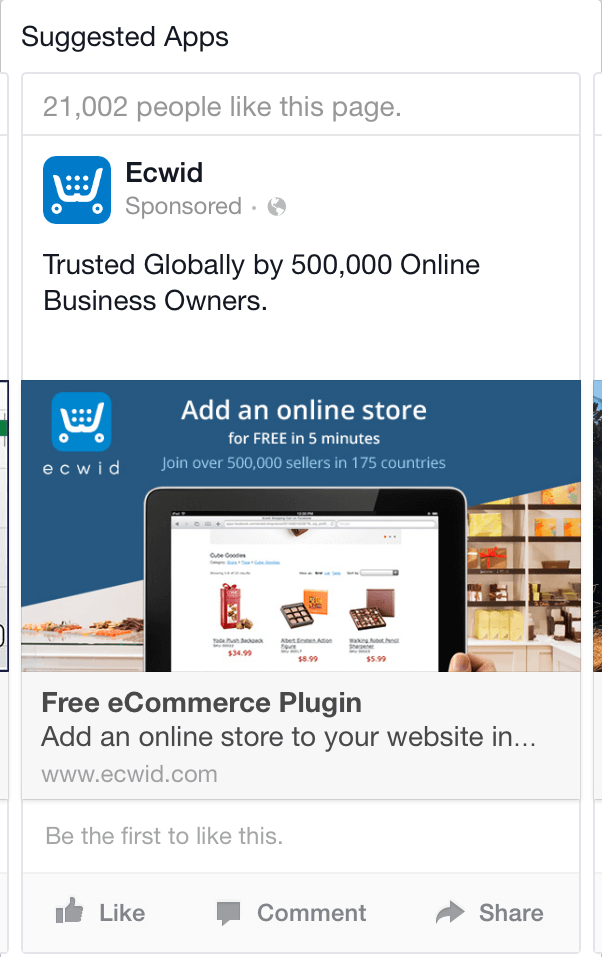
2. Communicate Value While Keeping Your Target Audience in Mind
On Facebook, you can’t expect a user to applaud a clever copy strategy. Because users scroll quickly, your ad should immediately communicate what they’ll get by clicking. Be simple and direct in your headline.
Take a look at the AppSumo ad campaign below. It clearly communicates you get a free business cheat sheet to help you create a lifestyle business in 24 hours. It’s direct, to the point, and it isn’t one bit confusing.
This direct marketing tactic may not win an award for creative media marketing – but it gets the job done.
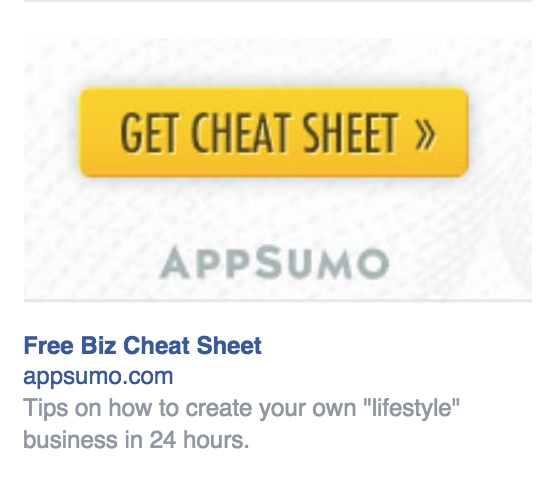
Here’s another ad campaign, by Anne Samoilov, that directly offers her solution (that her prospects might be after) behind a CTA.

You might need to change your ad copy strategy and image, based on your target demographic. Look how differently Arlington Club targets young and old folks.
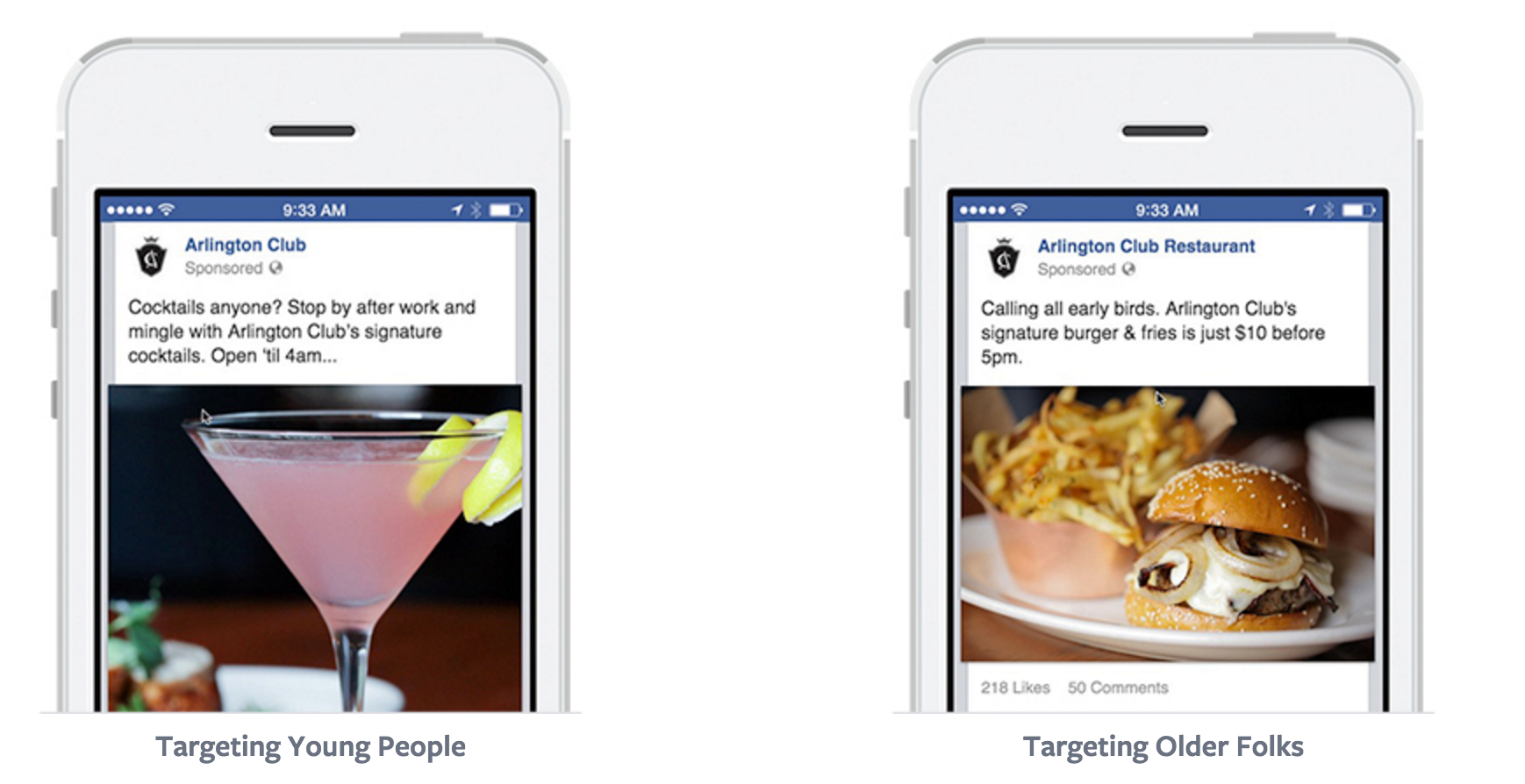
You may also need to adjust your tone of voice, to appeal to your target audience.
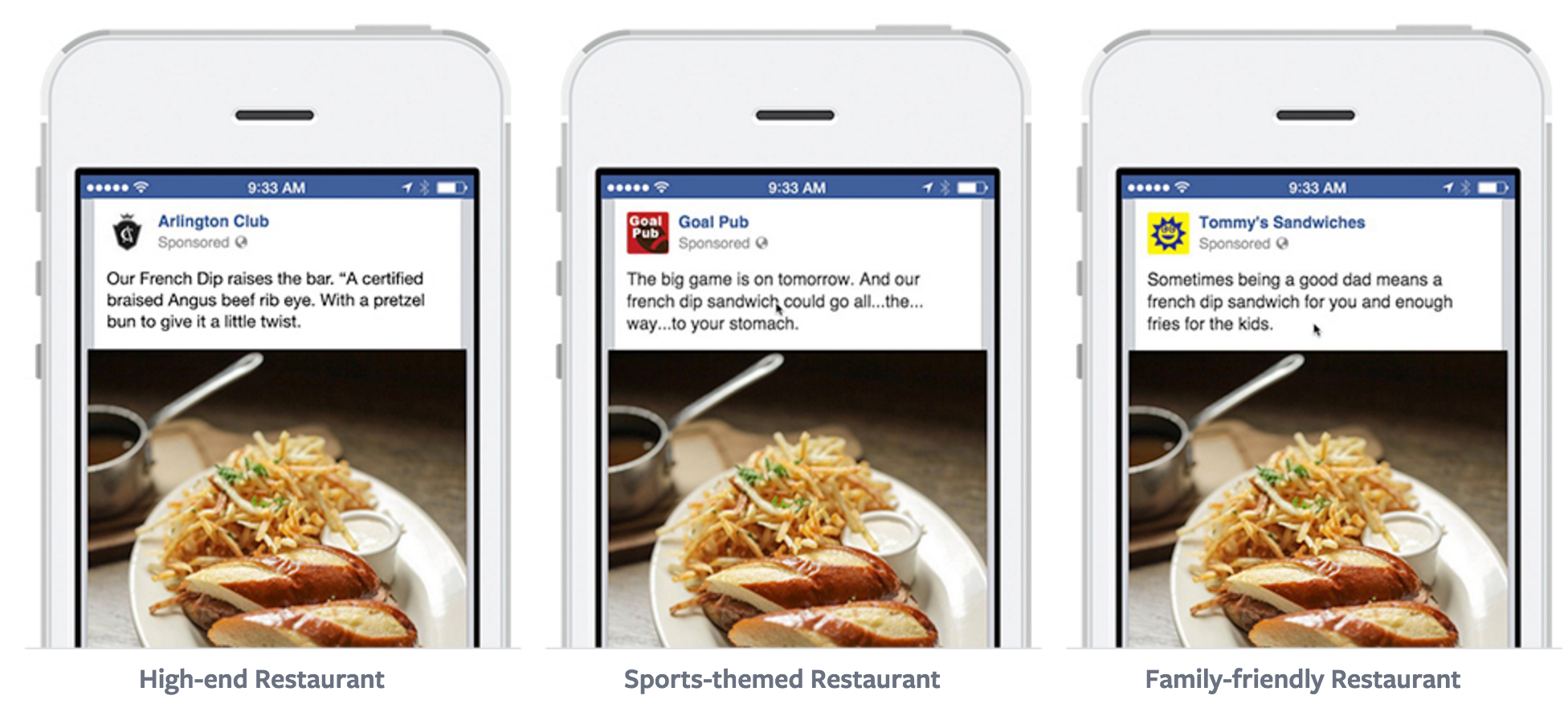
3. Ask Questions and Use Emotions to Engage Your Audience
Questions are a powerful instrument to stop the user and make them think.
For example – anyone suffering from low website conversions is likely to stop scrolling through the search engines or social network sites at the Qualaroo ad below.
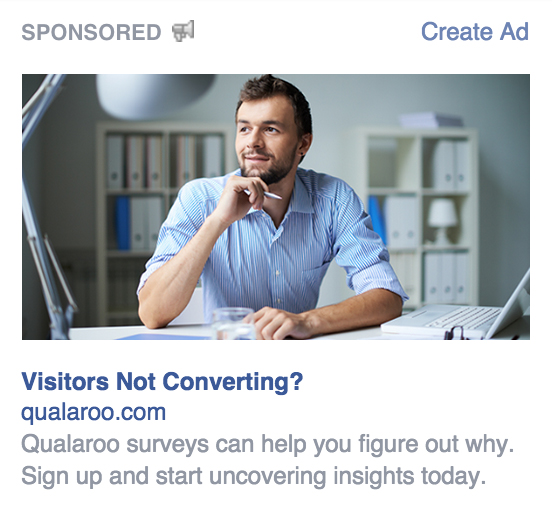
Appealing to your customers’ emotions will help them like you. Put yourself in their shoes and think of their fears, objections, and motivations. You can also present your product as a solution to their problems.
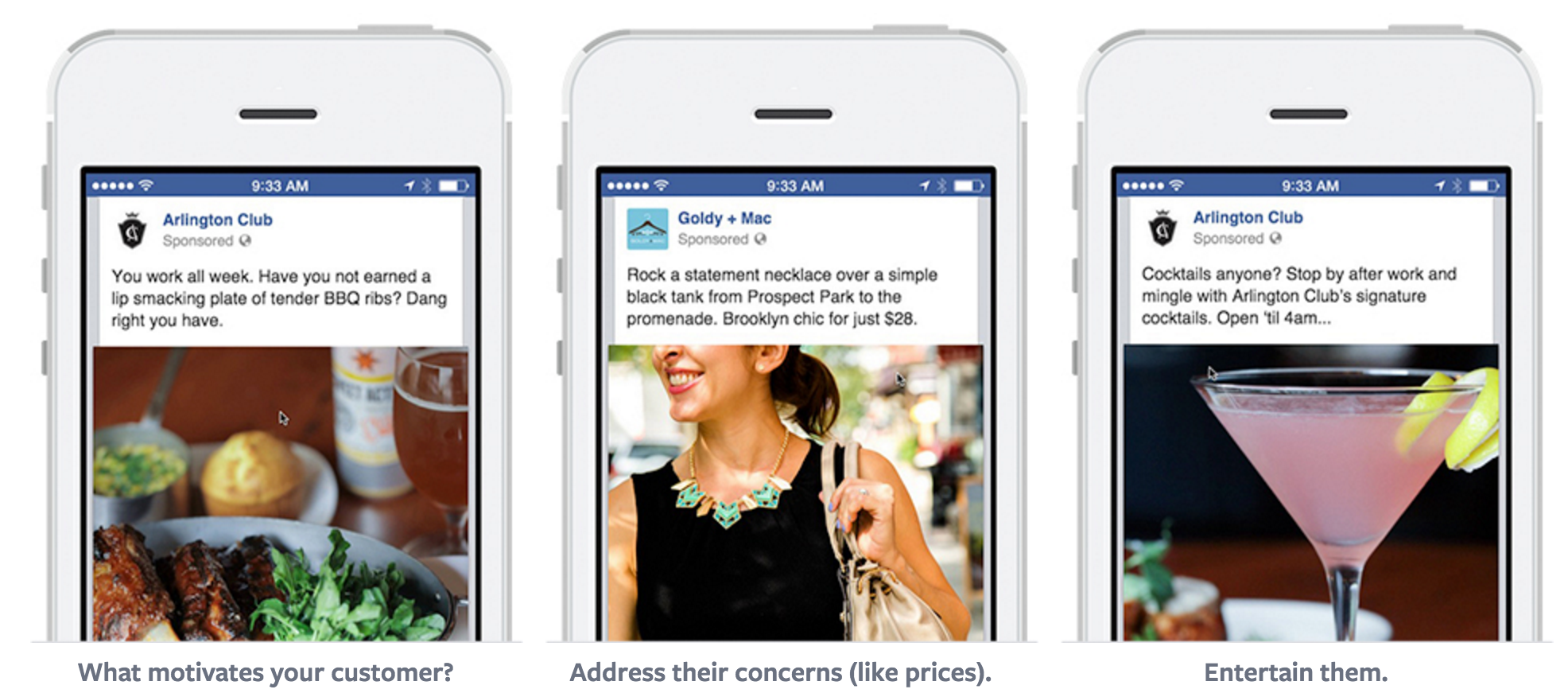
Besides the above three strategies, I also want to share the official cheat sheet by Facebook for crafting effective ad copy.
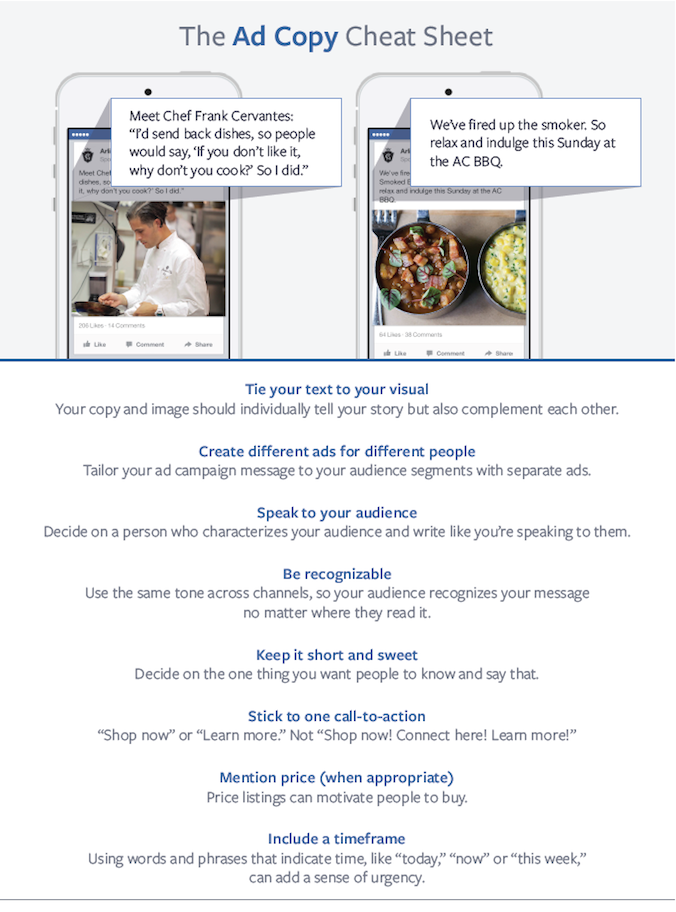
Twitter Ad Copy Strategies
The microblogging platform has 300,000+ active advertisers. Here are three copywriting strategies by Twitter experts, based on an analysis of 9,000 website click or conversion campaigns.
Adrian reported a 23,810 percent increase in his tweet’s reach by adding only one hashtag in his marketing campaign.
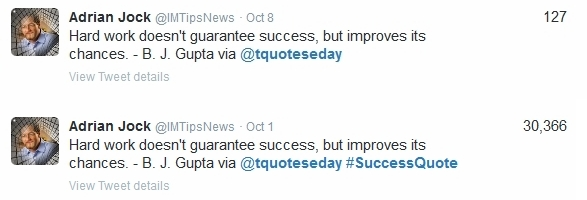
His hypothesis for such a tremendous rise in impressions is that he’s helping Twitter’s search algorithm to understand the nature of the tweet with the ‘#’.
That might motivate you to multiply your hashtag usage. But, the engagement actually falls by 17 percent beyond two hashtags.
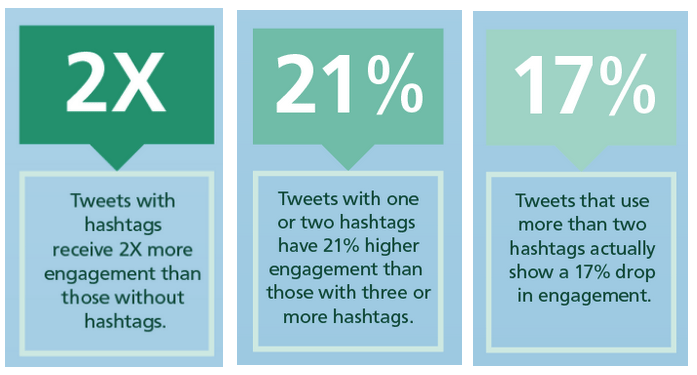
In Twitter’s analysis, promoted tweets with hashtags saw a 24 percent higher CPA (cost-per-acquisition) and a three percent lower LCR (link click rate).
Why? It’s likely because hashtags draw attention and become another avenue for the user to click in your ad (besides your CTA).
Like a high-converting landing page, your Twitter ad should ideally have a single place to click.
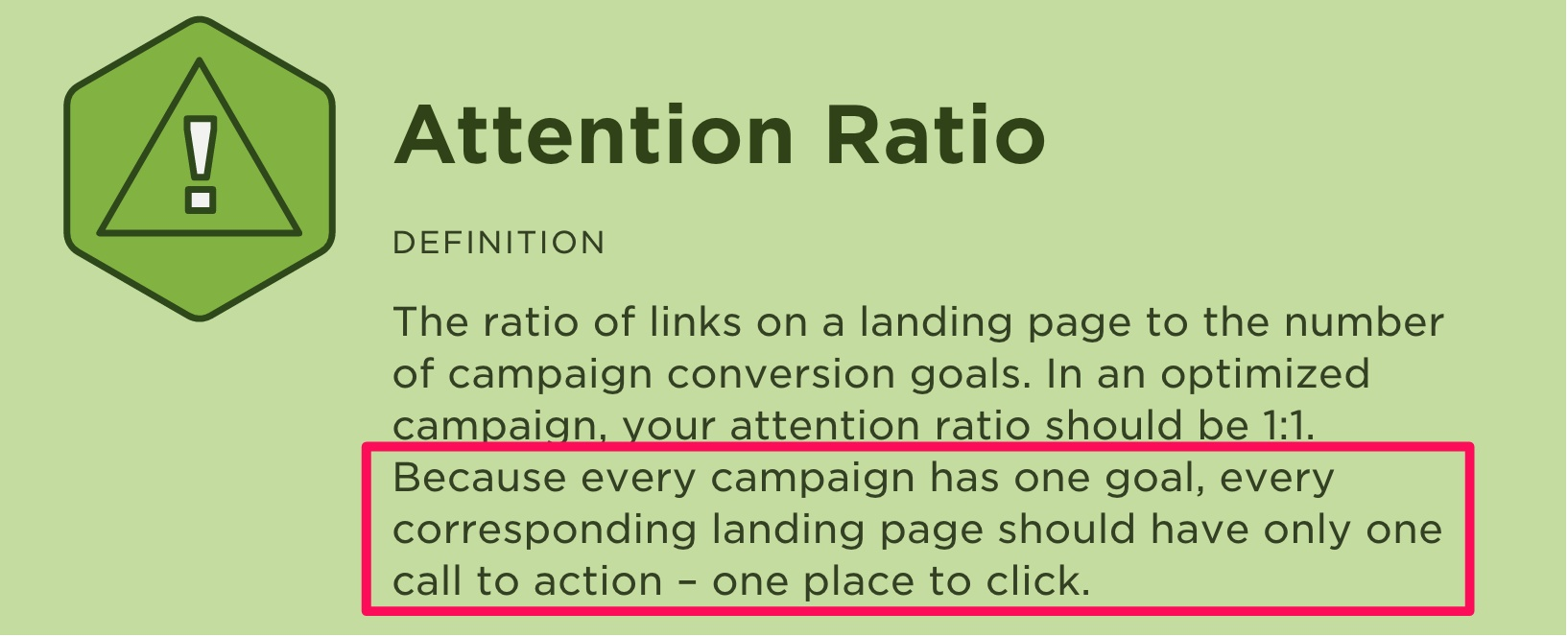
So, you might want to avoid using hashtags in your promoted tweet.
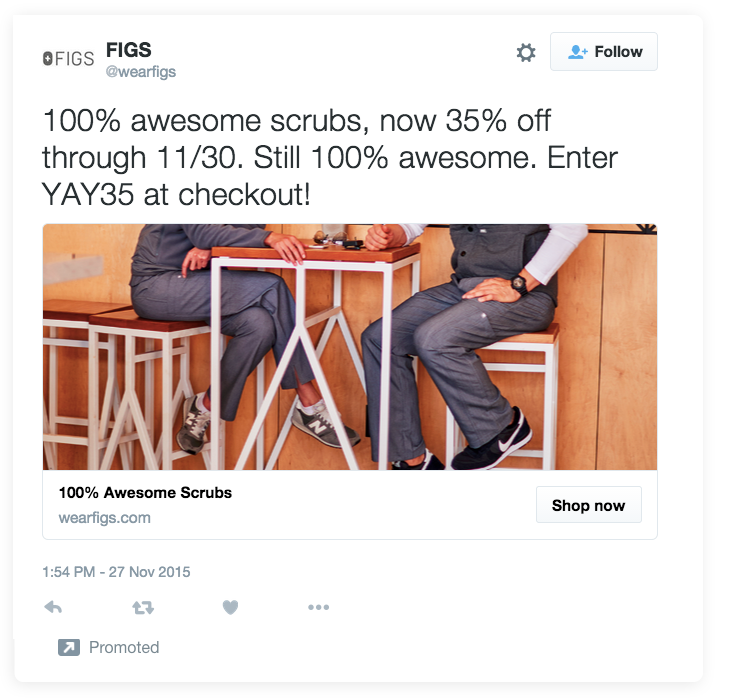
2. Be Succinct
You get only 280 characters to communicate your message on Twitter. So you’ll want to be concise/
With promoted tweets, pay extra attention to ensure you focus on the most important information. 40-60 character tweets get a much lower CPA than longer ones.
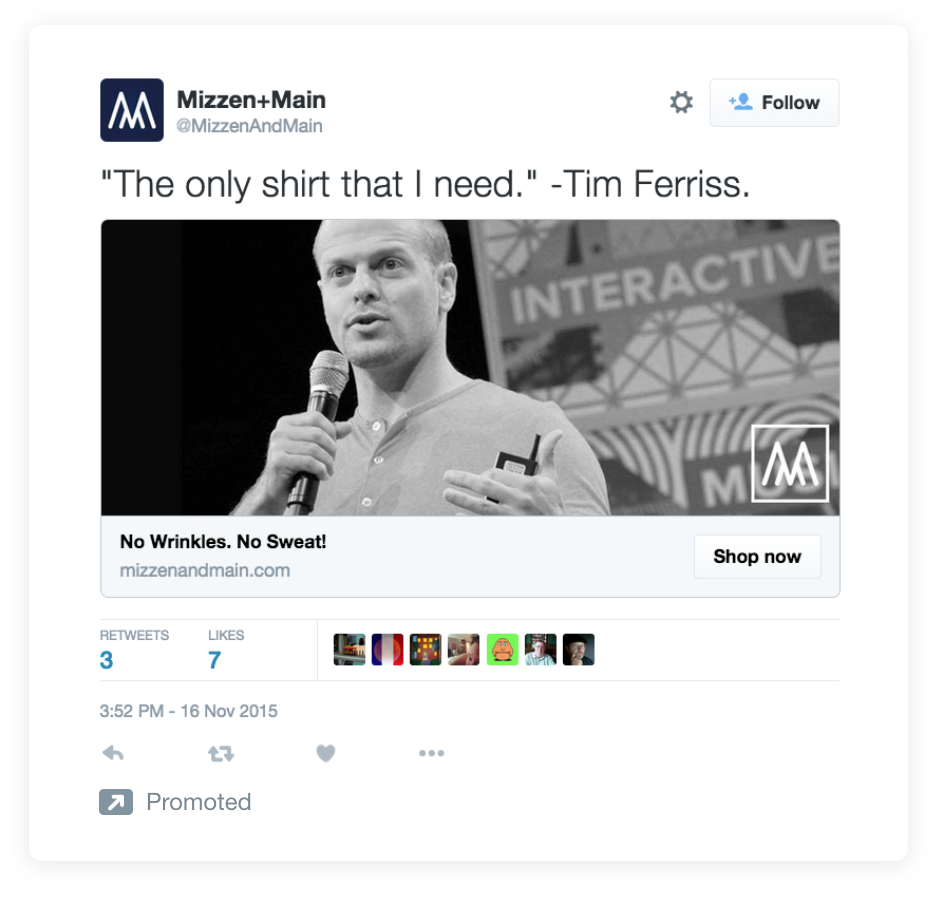
If you can’t keep it short, use questions to engage your audience. Tweets with a question have nine percent lower CPLC (cost-per-link-click) and a 16 percent higher LCR.
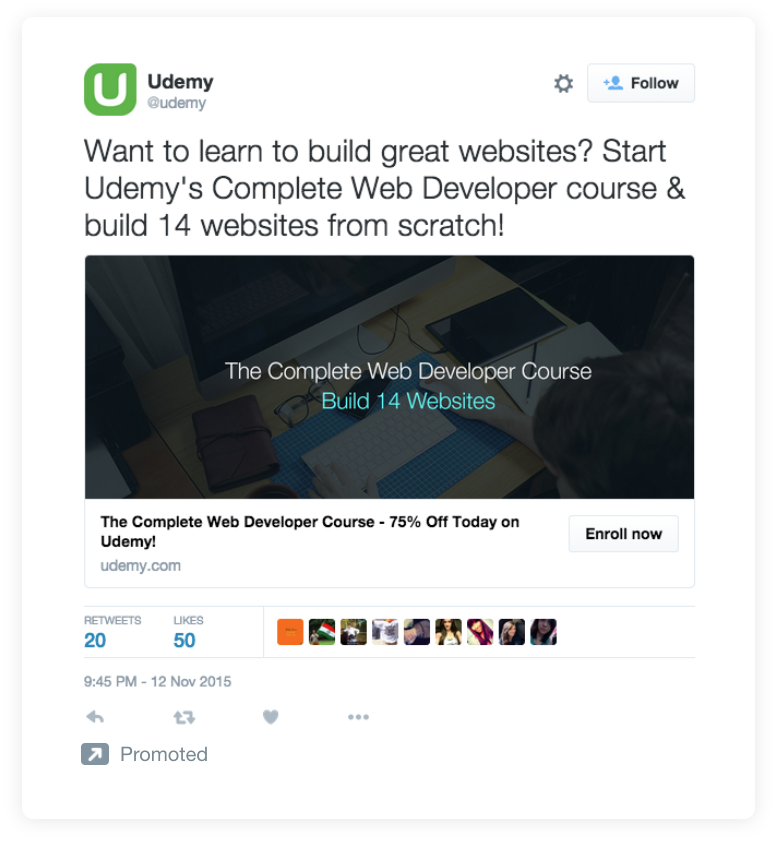
3. Create Urgency and Freshness Using These Words
Urgency is a psychology-based marketing tactic used to compel your customers to take action. OnePlus built a strong desire for its mobile phone using this ad strategy.
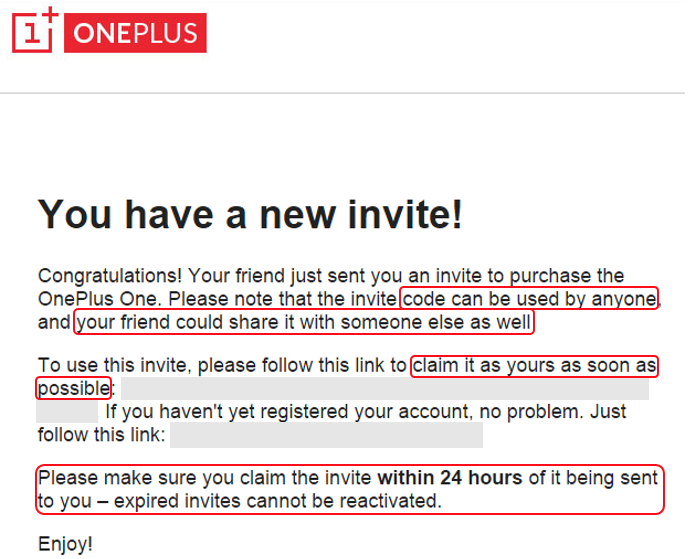
Similarly, on Twitter, using words like “hurry”, “fast”, “now” or “limited time” lowers CPA and increase LCR by 10 percent each.
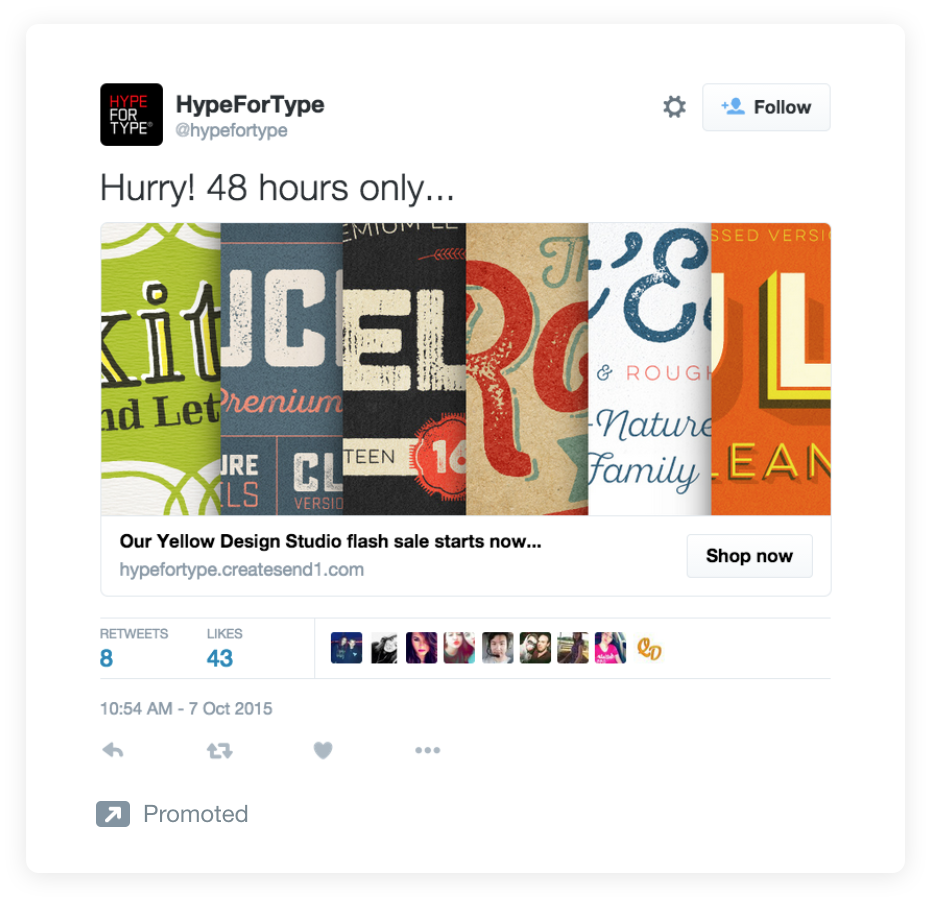
Are you announcing sales on new products or services?
Then, use the word ‘new’ in your Tweet copy. It lowers your CPA by 10 percent and CPLC by 26 percent.
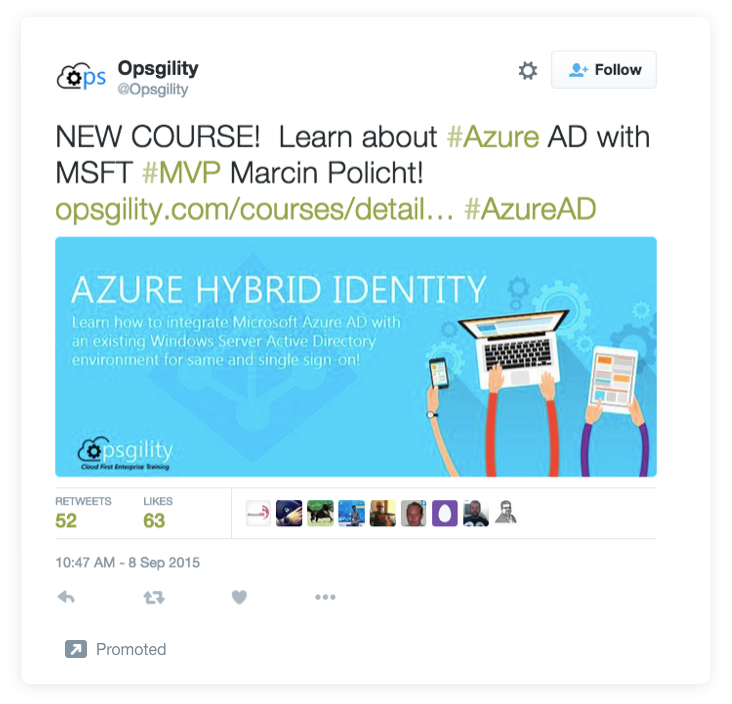
LinkedIn Ad Copy Strategies
This is a social media hangout for businesses and professionals. It’s the most effective social media platform for generating leads for B2B businesses.
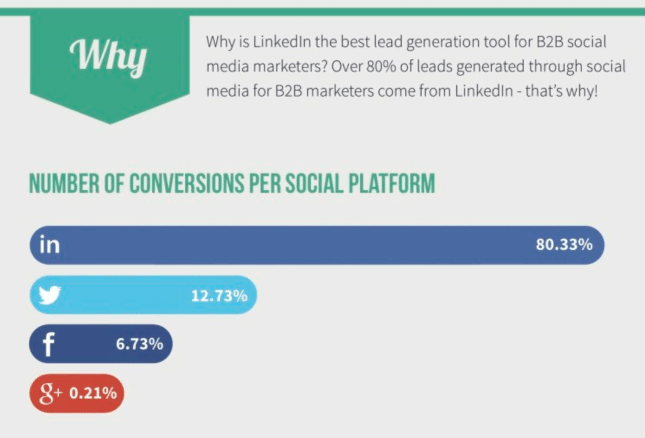
Here are three effective copywriting and digital marketing strategies to help you drive more customers from LinkedIn ads.
1. Address Pain Points (Brownie Points for Negative Superlatives)
Don’t forget that businesses are run by people.
If you can evoke emotions, you will win over your prospects. This works because human beings make decisions emotionally, not logically.
A great strategy for engaging your audience is to directly address their challenges. Also, negatives in your headline (like stop, avoid, never, or worst) can improve your CTR.
CommVault (data and information management software) nails its copy with a single line. The ad also presents five reasons why their audience might be facing the problem, thereby piquing interest.

2. Precisely Target and Qualify Buyers
Knowing specific traits of your audience can help in tailoring your copy to pre-qualify them.
An example is the Bizible ad below. It gets a 600 percent ROI, because it qualifies their buyers in the first sentence.
The campaign cast a narrow net, targeting 2,000 LinkedIn users. That’s the level of targeting you should also aim for in your digital marketing strategy.
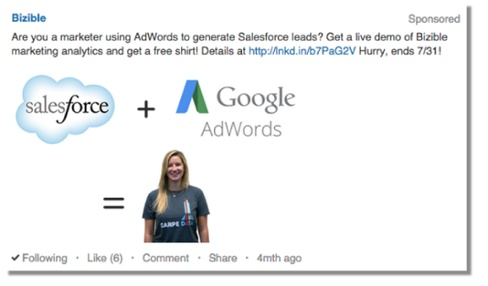
3. Include a Direct and Persuasive Call-to-Action
You can use a bunch of techniques to persuade your customers, but don’t assume they know the next step.
Instead, offer simple, clear, and direct instructions on what to do next.
Instruct your audience using words like ‘download’, ‘get started’ and sign up,’ in your ad copy.
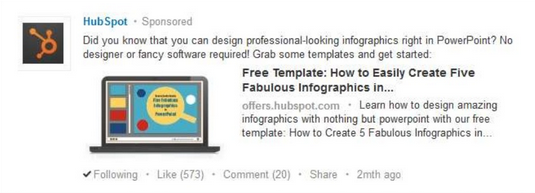
Ad Copy FAQs
What is ad copy?
Ad copy is a blurb designed to entice readers to purchase your products or services.
What is Facebook ad copy?
Facebook ad copy is the text that accompanies ads you run on Facebook. The text encourages those who view your ad to take a specific action.
What is the first step of creating great ad copy?
To create ad copy, the first thing you need to do is define the goal of the copy. Sell a product? Get someone to watch a video? Click to a landing page? Then create a clear, direct CTA.
What are the main types of advertising copy?
The main types of ad copy are human interest, educational, “reason why,” institutional, suggestive, and exploratory.
Ad Copy Strategies Conclusion
If you want to improve your ad’s performance on any network, testing your ad copy is a good starting point before hitting the search engines. Your message plays a pivotal role in ensuring that you attract high-quality traffic.
The 12 ad copy strategies I’ve shared in the article should help you craft seductive ad copy, persuade your customers and increase your ROI.
Which advertising network do you find the most lucrative? Are there other copywriting strategies you’ve used to increase your ad CTR?
————————————————————————————————————————————–
By: Neil Patel
Title: 12 Ad Copy Strategies That’ll Double Your CTR and Increase Your ROI
Sourced From: neilpatel.com/blog/12-ad-copy-strategies-thatll-double-your-ctr-and-increase-your-roi/
Published Date: Wed, 23 Jun 2021 12:00:00 +0000
